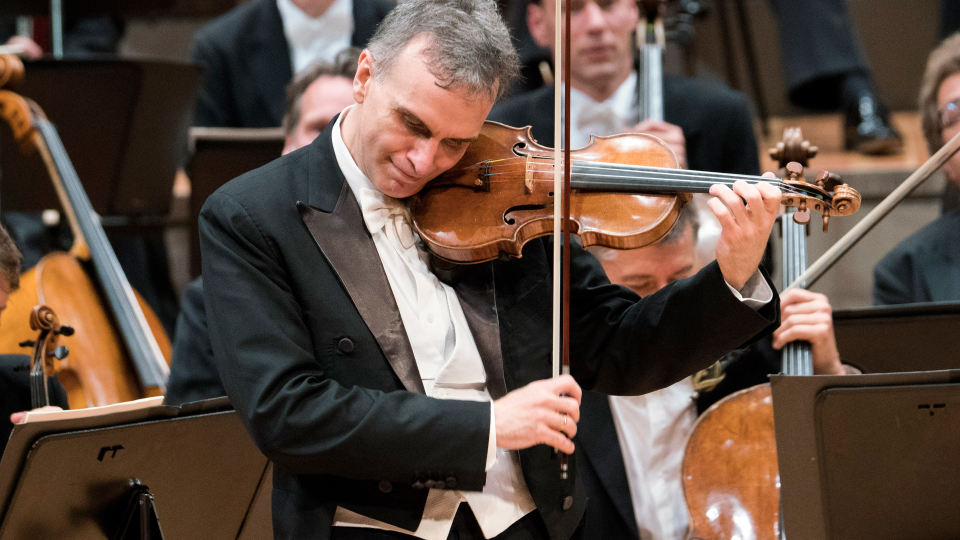Spiders, puppets and Mozart make fine company in Bringuier’s NSO debut
Lionel Bringuier conducted the National Symphony Orchestra Thursday night at the Kennedy Center.
An orchestra needs to play both familiar and rarely heard music to strike a good balance. This week’s program from the National Symphony Orchestra has one part of the latter to two of the former. As heard Thursday night at the Kennedy Center Concert Hall, the unifying factor was dance, featuring two ballet scores, and exotic/folk music sounds.
French conductor Lionel Bringuier, who first led the NSO in a summer concert at Wolf Trap in 2016, made an honorable debut on the subscription series. His best work came in the rarity, the vividly colored music Albert Roussel wrote for Le Festin de l’Araignée (The Spider’s Feast), arranged by the composer into a symphonic suite. The last time the NSO played the piece was under Howard Mitchell in 1956, and it made a welcome return.
The “Prélude” glistened with pastel sonorities, coaxed into mostly soft, prismatic vignettes as the garden awoke. Bringuier negotiated the many tempo changes with confidence, so that scene shifted into scene with ease. In the music for the ants, drums and louder instruments had incisive force, while loopy woodwinds swirled for the entrance of the butterfly, who becomes the spider’s lunch.
Murky sounds gave a mysterious air to the “Birth of the Mayfly” section, followed by surges of fast notes for that insect’s dance, a brief life highlighted by flourishes of silver piccolo. The mock-solemn funeral march followed quickly thereafter, before the opening flute solo returned to mark the fall of night over the garden.

Gil Shaham.
Gil Shaham returned to the Kennedy Center stage as soloist in Mozart’s Violin Concerto No. 5. The first movement was quite brisk, with Bringuier forced at times to make slight corrections as Shaham darted ahead. Although Shaham’s intonation was sour at times in the high end, he was technically adroit in the cadenzas by Joseph Joachim, heavy on double stops. After retuning at the break, Shaham was more on target in terms of intonation in the second movement, but the rhythmic unpredictability continued, ruffling the calm of the music’s surface.
The third movement, jaunty but also erratic, seemed on the road to similar results, until the striking duple section appeared. Although it gave the nickname “Turkish” to this concerto, this music is really not in the janissary style, having more the strongly accented, wildly chromatic feel of Hungarian folk music. Shaham played the raw tone of his 1699 “Countess Polignac” Stradivarius to the hilt, matched by the crisply articulated playing of the NSO.
In a lovely gesture, Shaham obliged the insistent audience with an unusual encore. He and concertmaster Nurit Bar-Josef gave a charming rendition of the Gavotte from Jean-Marie Leclair’s Sonata No. 5 for Two Violins. The duo traded phrases back and forth with one another almost imperceptibly, as they matched their tone and pacing perfectly.
The evening closed with an early modern masterpiece, Stravinsky’s score for the ballet Petrushka, in the 1947 revision for a slightly smaller orchestra. Bringuier brought out the brashness in the Shrovetide Fair scenes, amping up the tempo and the loud clash of different sounds as characters passed loudly back and forth. At the same time he allowed some room in the tempo to bring out the delicacy of the organ-grinder scenes, especially the celesta solo for the music-box.
An unidentified, prolonged noise from somewhere in the auditorium competed unfortunately with a finely rendered flute solo for the Magician. Bringuier and the musicians especially brought out the slippery quality of Petrushka’s herky-jerky music in the second tableau, as well as the grotesque, even violent fits and starts of the Moor’s music in the third. Particularly excellent solos came from trumpeter Thomas Cupples, in the dance of the Ballerina with the cornet, and the duet of growling tuba and squealing clarinet in the bear scene.
The program will be repeated 11:30 a.m. Friday and 8 p.m. Saturday. kennedy-center.org; 202-467-4600
